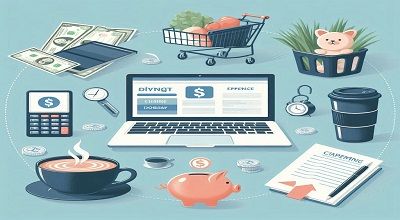Understanding Expenditure: Definition and Examples
Expenditure refers to the act of spending money or utilizing resources to acquire goods or services. It is a crucial concept in economics, personal finance, and business management, representing the outflow of financial resources. Here, we’ll delve into various types of expenditures across different contexts.
1. Personal Expenditure:
Personal expenditure encompasses spending by individuals or households on necessities, luxuries, and investments. Examples include:
- Housing: Rent or mortgage payments, property taxes, and maintenance costs.
- Utilities: Electricity, water, gas, and internet bills.
- Transportation: Fuel, public transportation fares, vehicle maintenance, and insurance premiums.
- Food: Grocery purchases, dining out expenses, and meal delivery services.
- Healthcare: Health insurance premiums, medical bills, and prescription medications.
- Entertainment: Movie tickets, streaming subscriptions, hobbies, and recreational activities.
- Education: Tuition fees, textbooks, school supplies, and educational programs.
2. Government Expenditure:
Government expenditures comprises spending by governmental bodies at local, regional, or national levels. Examples include:
- Infrastructure: Construction and maintenance of roads, bridges, airports, and public transportation systems.
- Social Programs: Welfare, unemployment benefits, healthcare subsidies, and education grants.
- Defense: Military equipment, personnel salaries, and national security initiatives.
- Public Services: Law enforcement, firefighting, public education, and healthcare facilities.
- Debt Servicing: Interest payments on government borrowings and debt repayments.
3. Business Expenditure:
Business expenditure involves spending by companies to operate, grow, and generate revenue. Examples include:
- Operating Expenses: Rent for office space, utilities, salaries and wages, and office supplies.
- Production Costs: Raw materials, manufacturing equipment, and production labor.
- Marketing: Advertising campaigns, promotional events, and market research.
- Research and Development: Innovation projects, product testing, and technology investments.
- Capital Expenditure: Purchases of long-term assets like machinery, vehicles, and real estate.
- Taxes: Corporate income taxes, property taxes, and sales taxes.
4. Investment Expenditure:
Investment expenditure involves spending aimed at acquiring assets expected to generate future income or appreciate in value. Examples include:
- Stocks: Purchases of shares in publicly traded companies.
- Bonds: Investments in government or corporate debt securities.
- Real Estate: Buying residential, commercial, or industrial properties.
- Mutual Funds: Investment in professionally managed portfolios of stocks, bonds, or other securities.
- Retirement Accounts: Contributions to 401(k) plans, IRAs, or pension schemes.
- Startups: Funding provided to new ventures in exchange for equity ownership.
Final Conclusion
In conclusion, expenditure encompasses various forms of spending across personal, governmental, business, and investment spheres. Understanding expenditures is essential for effective financial management and economic analysis in both individual and organizational contexts.
